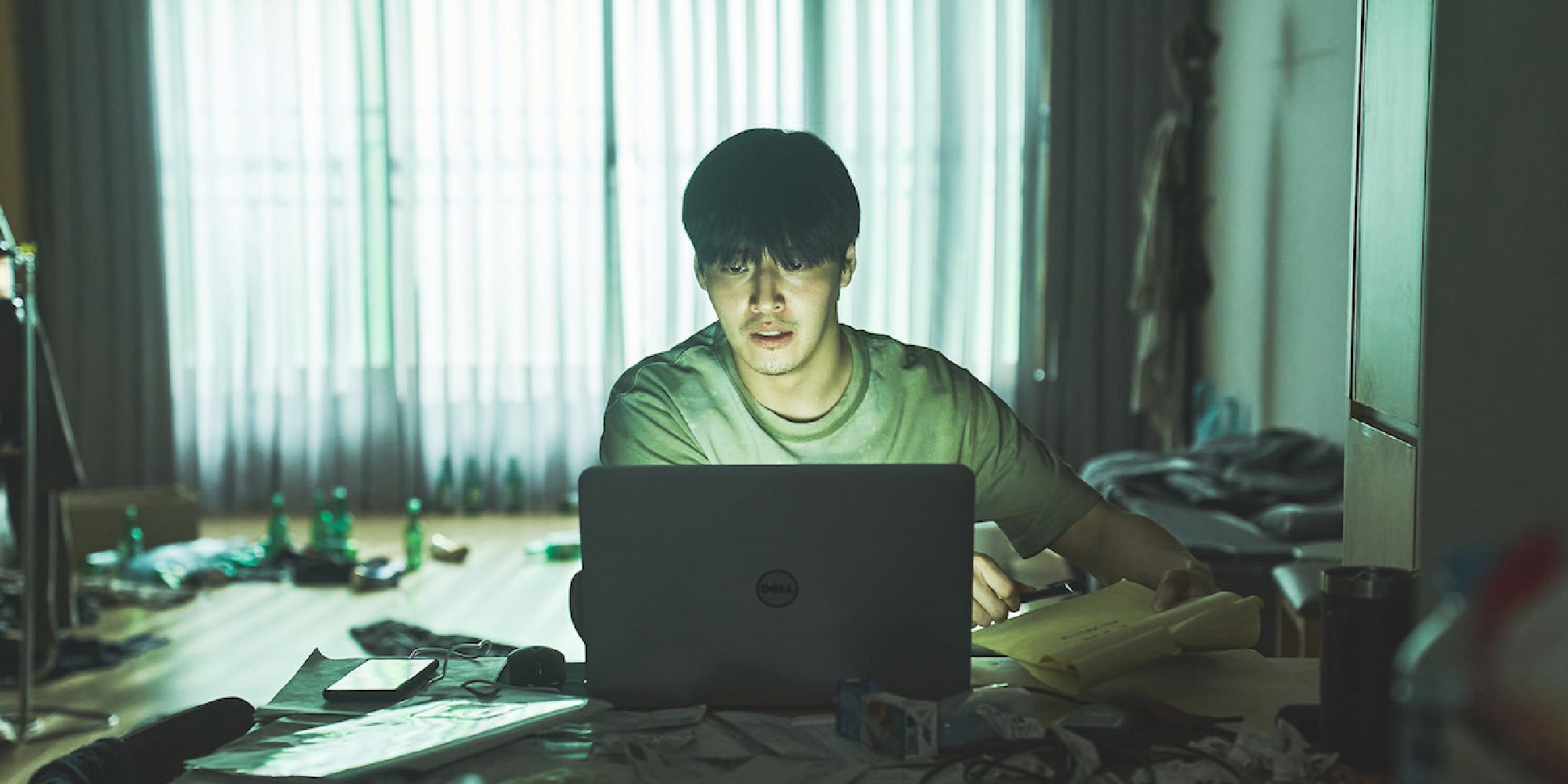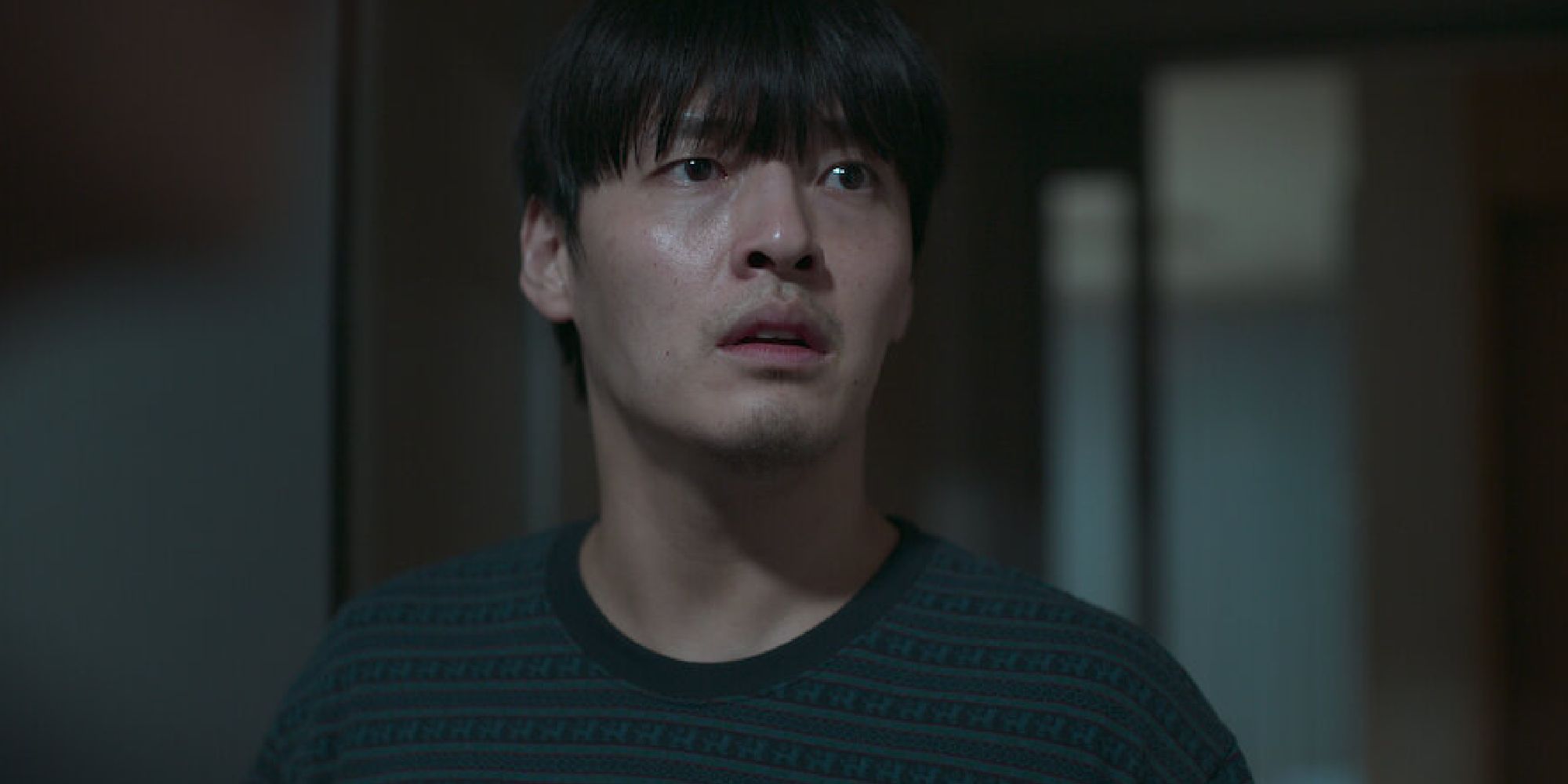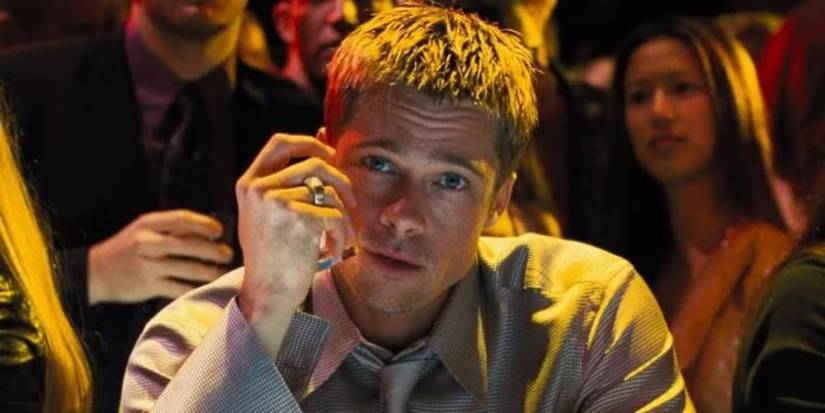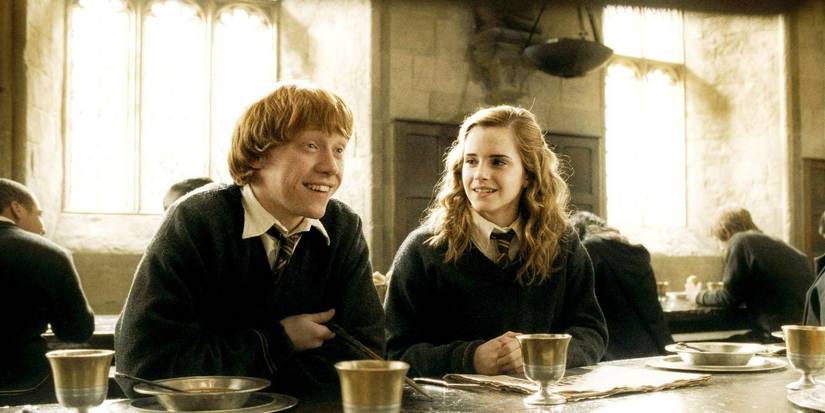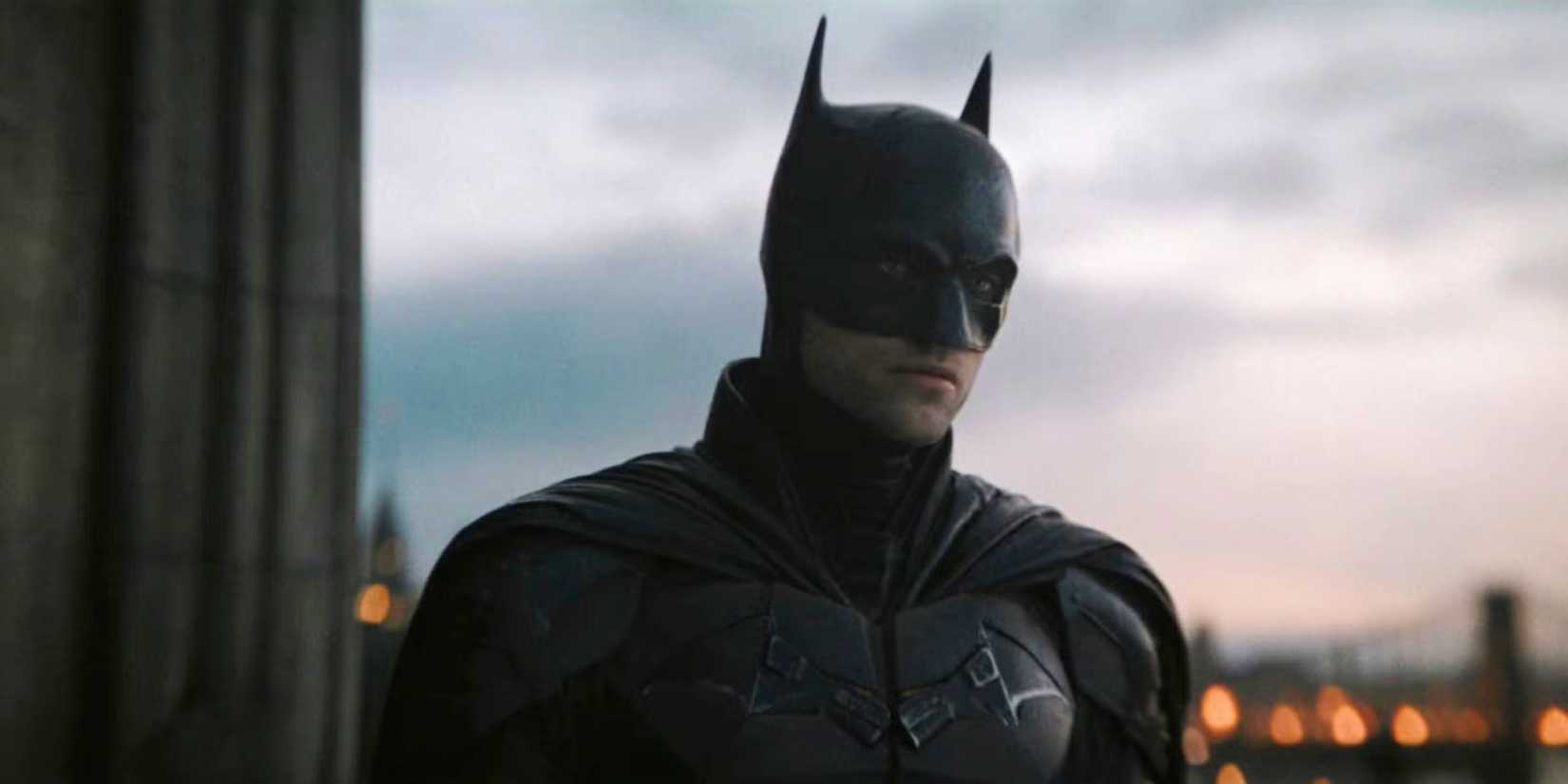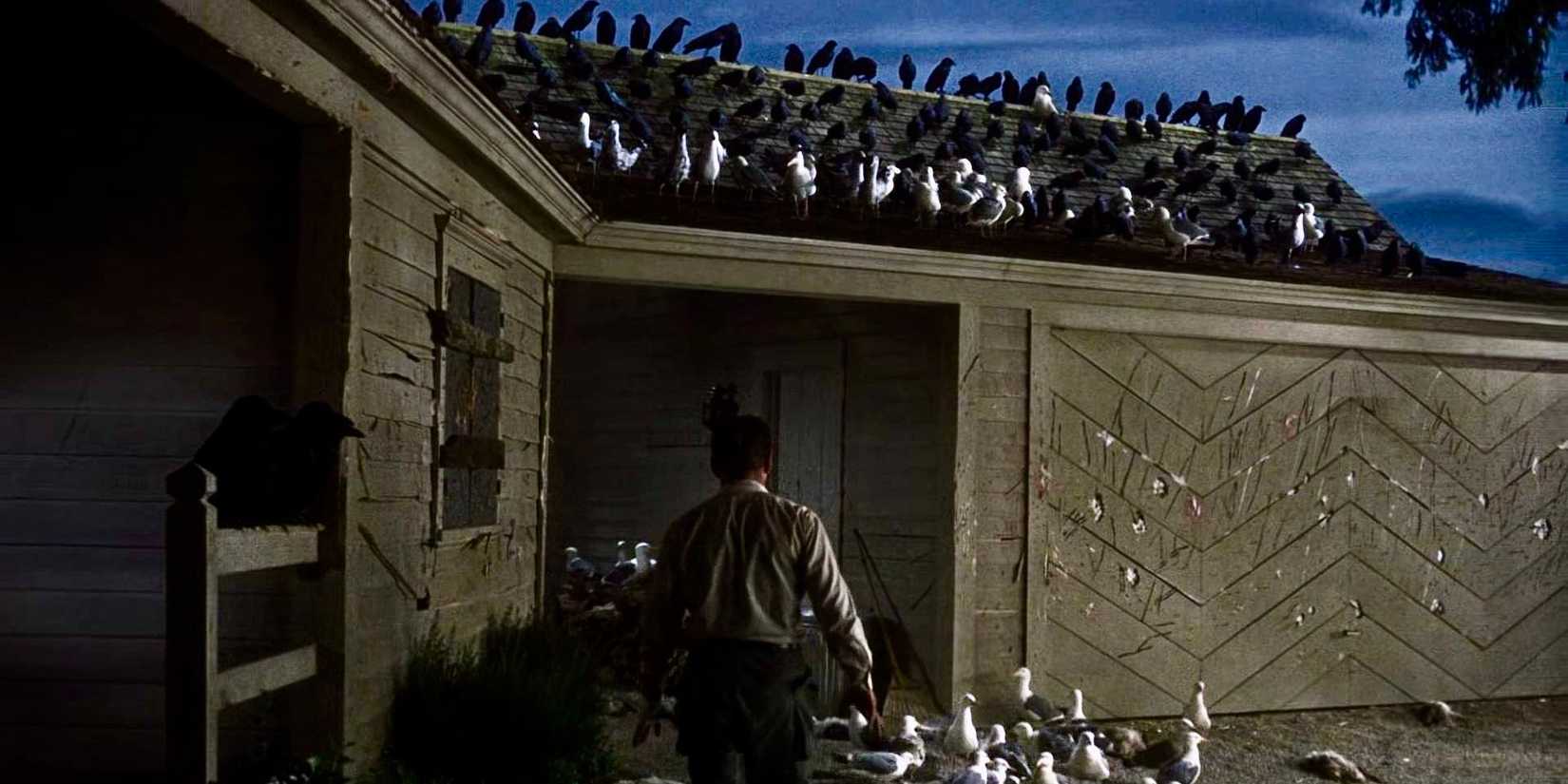The following contains MAJOR spoilers for Netflix’s Wall to Wall
Wall to Wall is a compelling new thriller on Netflix, and the ending is important to explore in detail. Drawing comparisons to other pertinent Korean dramas like Squid Game and Parasite, Wall to Wall tells a twisting story about poverty, class disparity, and homeownership in contemporary Korea.
Among the best Netflix thrillers, Wall to Wall stands out for its unique approach to complex themes. Kang Ha-neul plays Woo-seong, an everyman figure who struggles to make enough money to keep his home. Plagued by insurmountable fees, he works long hours and refrains from using electricity at home in an attempt to reduce costs.
From there, an investment opportunity arises, and Woo-seong takes a giant risk. As this happens, however, a larger plot begins to unravel, as a terrible sound in his building refuses to cease. He is blamed for the sound by his neighbors, and tensions arise between them throughout the film, culminating in a shocking and violent conclusion.
Jin-ho Was Looking For Revenge Against Eun-hwa
Eun-hwa Had An Important Story Buried
The end of the film culminates with violence, with Jin-ho being revealed as behind the sound. Woo-seung’s neighbor from above, Jin-ho is a journalist who has been working to create a story that will help him take down Eun-hwa. Eun-hwa, as a prosecutor, was able to block one of Jin-ho’s exposés from being published, sending him out for revenge.
Jin-ho is unstable, and this leads to incredible violence near the end of the film. Manufacturing a story that was supposed to cast Woo-seung as a victim of corporate greed, driven to madness, Jin-ho winds up killing his neighbour from 1301, then Eun-hwa’s husband.
These actions are terrifying and indefensible, even though Jin-ho’s efforts are in pursuit of justice. Eun-hwa is an exploitative slumlord who is looking to profit off of others, buying up properties to sell off at an increased rate. Jin-ho wants to see her crimes exposed, but is willing to hurt the innocent to make this happen.
Korean Home Ownership In Wall To Wall Is A Pipe Dream
Exploitation Is Always Possible By Those Who Are Richer
Homeownership is an important theme in Wall to Wall. The movie begins with Woo-seung acquiring a home of his own, and this is supposed to be an important step in his life. He envisions a future there, where he will be able to comfortably build a family of his own.
Several years later, that comfort has not been found, and Woo-seung struggles to pay all of his bills. His homeownership, while giving him a small and superficial class advantage over renters, especially in conversation with Eun-hwa, is mostly meaningless.
Eun-hwa says that she can kick out the tenants in 1301, which reinforces the class separation that comes from homeownership, and the control over this property does allow Woo-seong the opportunity to get funds for the GB coin scheme. Unfortunately, all of these plans wind up immaterial, and Woo-seong remains poor at the end of the film.
Woo-seong Was Only Collateral Damage
Jin-ho’s Quest For Vengeance Does Not Care About Casualties
Jin-ho decides to use Woo-seong as his patsy. He sees him as the ultimate victim of class oppression, but decides to exploit that image rather than support him in any meaningful way. Jin-ho exacerbates Woo-seong’s difficulties by framing him for terrible sounds throughout the building, sneaking a speaker and phone into Woo-seong’s closet.
Kang Ha-neul, who plays Woo-seong, was recently seen as Kang Dae-ho in Squid Game.
This follows with Jin-ho murdering the neighbor from 1301, blaming it on Woo-seong as well. It is revealed that Jin-ho even paid her to complain about the noise to Woo-seong, causing all the neighbors to come together against him. All of this culminates in making Jin-ho a bit of a confusing character.
While ostensibly motivated by the pursuit of truth, Jin-ho’s actions contradict this. Clearly, Jin-ho is disconnected from his own humanity, but there is a sad irony in his willingness to use lies to reach the truth that was taken away from him. His actions are confusing in their motivations, but all stem from his own truth being suppressed by Eun-hwa.
The film’s look at class differences gets a bit muddled up in violence, especially to do with Jin-ho’s sociopathic actions. However, the story does an effective job of communicating the destructiveness of infighting. By pitting the lower classes against one another, the empowered, like Eun-hwa, can remain safe.
What Does Burning The Ledger Mean?
The End Of The Film Sees Woo-seong Trapped In The Same Conditions
In the final conflict between Jin-ho and Eun-hwa, both ultimately wind up ᴅᴇᴀᴅ. Jin-ho urges Woo-seong to take the ledger, which will expose all of Eun-hwa’s crimes, and make those details public. Instead, Woo-seong is given the first opportunity in the film to benefit himself, and he burns the ledger, erasing the records of his selling his apartment.
From there, Woo-seong has some moments of quiet and reflection after he is nearly killed. He is taken to convalesce at his mother’s place in the country, and there is a serenity and peace there that is not present in the urban Seoul locales. Still, Woo-seong chooses to return home and is greeted by the same sounds of construction.
Many factors trap people in these urban settings. There is joy to be found in the lives that they create, but there is also great sadness in how they empower capitalist powers over humanity. The ending of Wall to Wall gives Woo-seong a little bit of peace, but the factors that hurt him still persist in the movie and reality.

Netflix
- founded
-
January 16, 2007
- first original series
-
Lilyhammer

